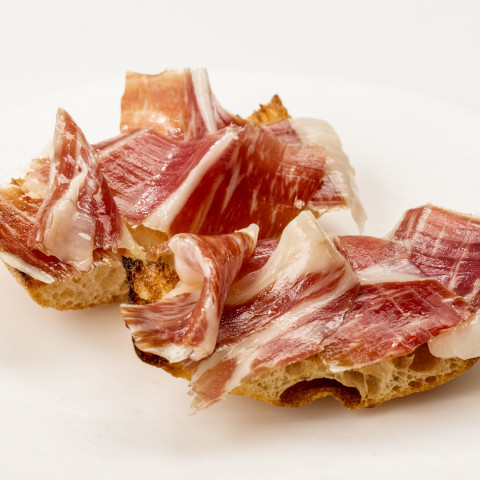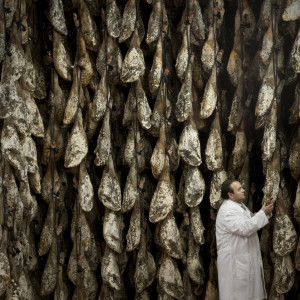

Joselito
In a world in which the legal protection of Jamón Ibérico is still far from watertight, some producers will always try to find loopholes. To stand out from the crowd, you have to set up and perfect your own quality control system. So that is what we have done. The pigs from the Joselito house are all from Joselito’s own bloodline; they are all descended from animals raised on the house’s own farm. As none of them has been bought from outside, it’s certain that they have not been fattened on corn. That cannot be said of animals from outside. In the six months between October and March, the acorns fall from the trees. This season is also known as La Montanera and it coincides with the final phase in the raising of the Joselito pigs.

Oak Forest
Each adult pig has to eat about 9 kg of acorns and 3 kg of grass every day in order to double its weight in those six months; in six months they grow from 90 to 180 kg! It takes between two and four hectares of woodland, depending on the density of the oak trees, to produce 9 kg of acorns for each pig. The oak woodland, known as a Dehesa, is a mix of forest and grassland. Joselito has 120,000 hectares. About 45,000 pigs are slaughtered every year to produce 90,000 hams, and nearly 3 hectares of land are needed for each Joselito pig. New oak trees are planted every year. Depending on the density, between 2 and 4 hectares are planted to be sure there are enough acorns. Planting new trees also prevents deforestation. It is a genuinely sustainable business. The pigs have a definite preference for the sweeter acorns grown by the Australian oak: they leave the other acorns till last. They have the palate of a three-star chef, says Joe Gomez, the man in charge of Joselito. The pigs crack the acorns open with their teeth and only eat the insides.
Interested?
More information about Joselito?
Call us on 036 - 535 92 00 or fill out the form.
